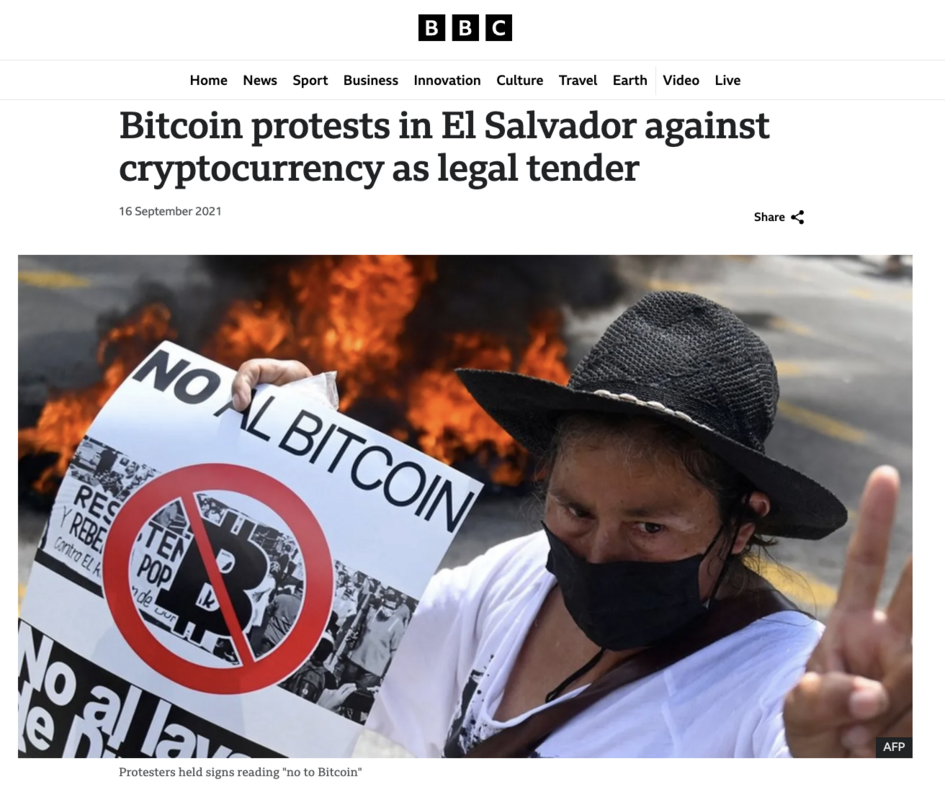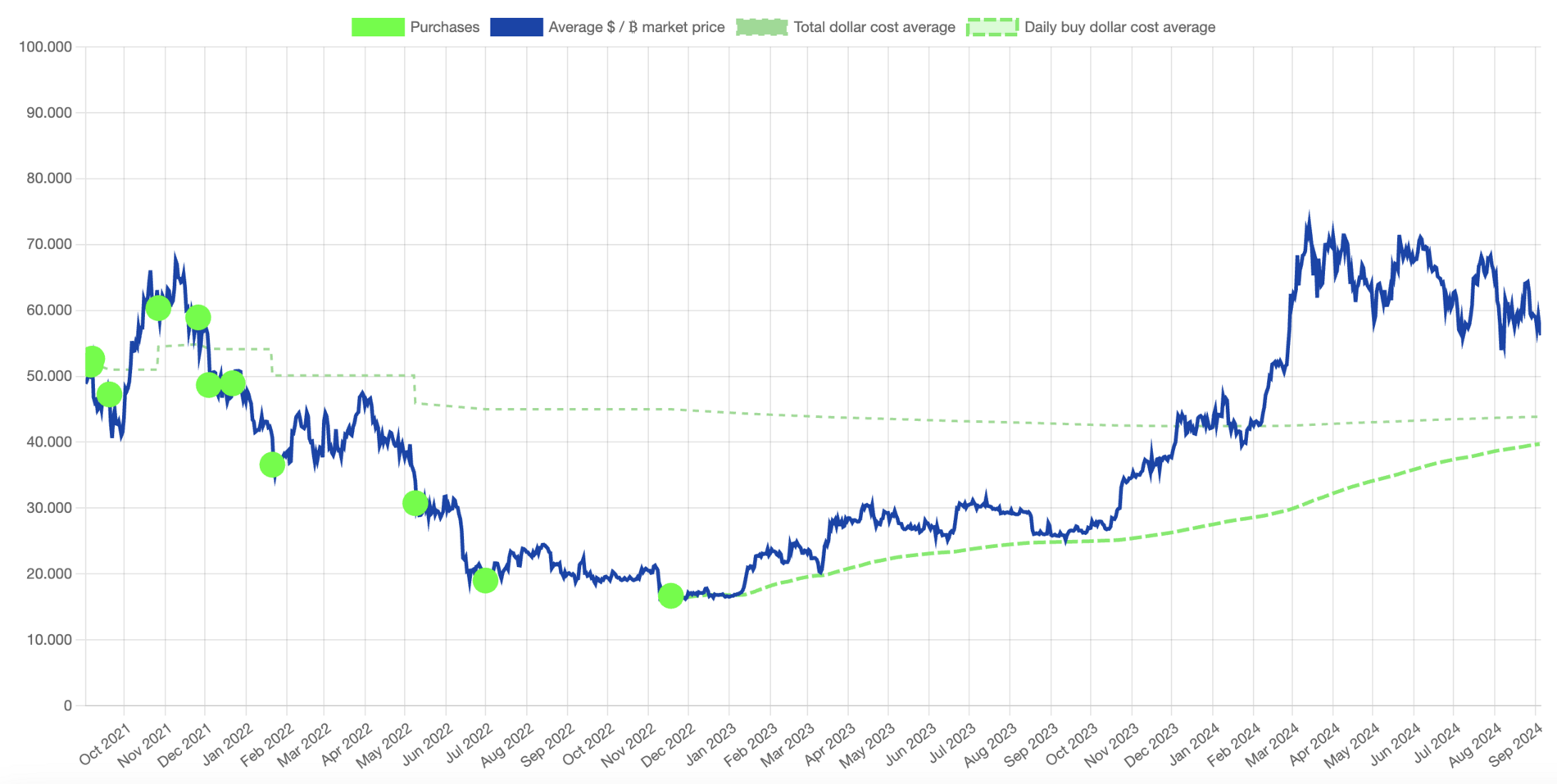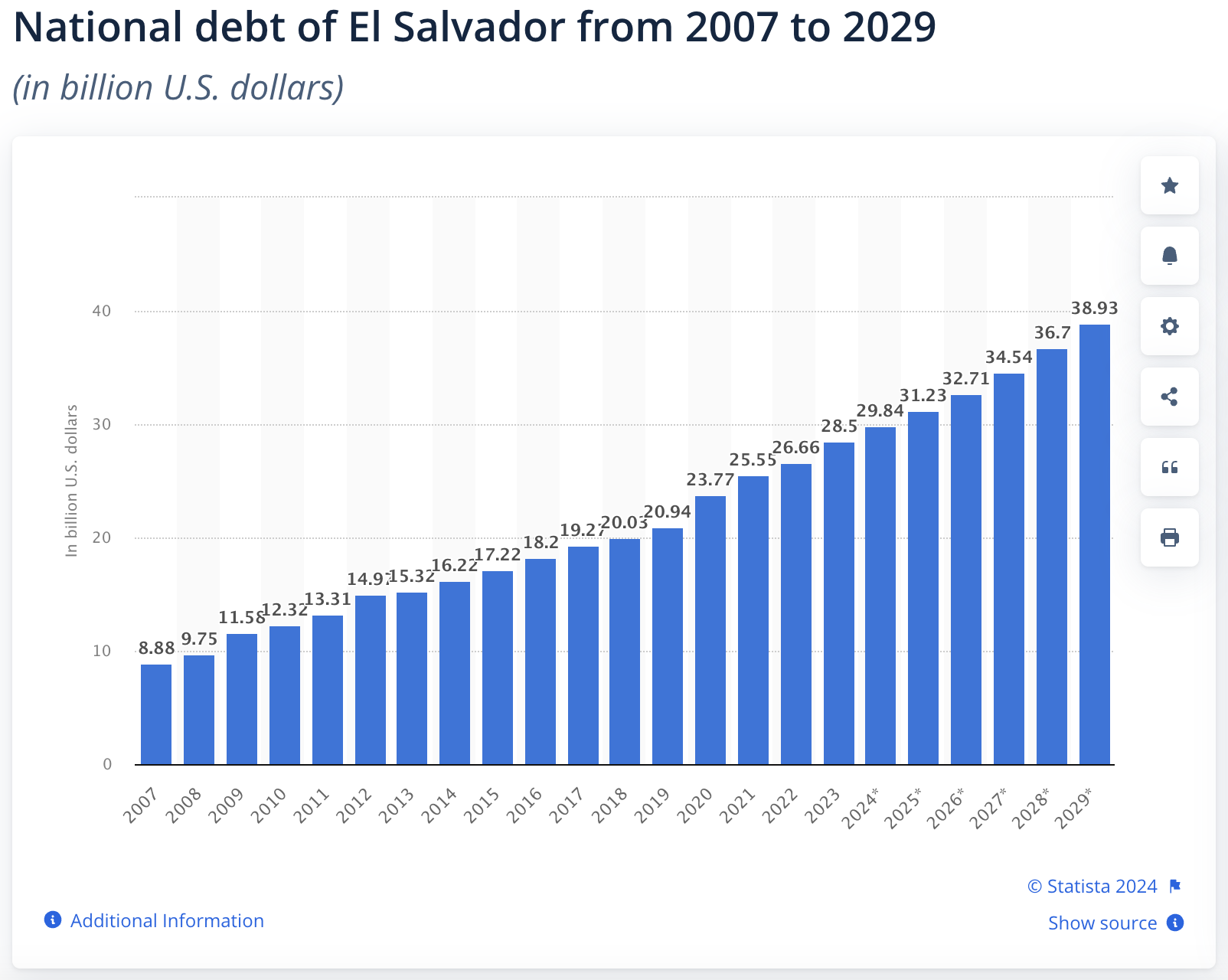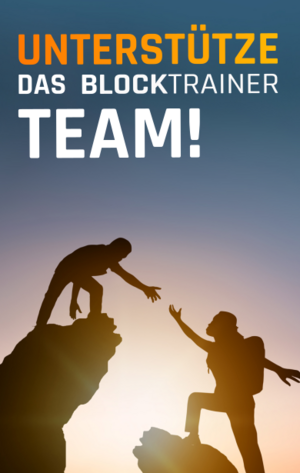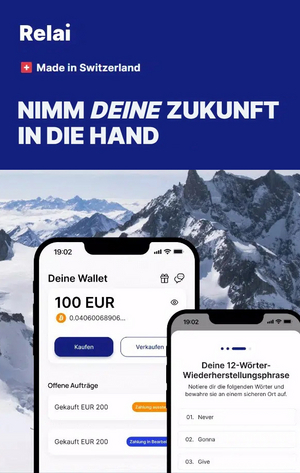Three years ago today, the law that made Bitcoin legal tender in El Salvador came into force.
The "Bitcoin Law" was passed by the Legislative Assembly on June 9, 2021 with a majority of 62 out of a total of 84 votes. President Nayib Bukele previously announced this major step by the small Central American country at the Bitcoin Conference in Miami.
A historic and controversial event
September 7, 2021 was an important milestone for both El Salvador and Bitcoin. Satoshi Nakamoto's creation was suddenly no longer just funny internet money or an object of speculation, but suddenly became a currency that is recognized as a means of payment in a sovereign state alongside the US dollar.
El Salvador's bold and controversial decision triggered a wave of reactions ranging from pure euphoria in the Bitcoin community to serious skepticism and concern among international economic experts and parts of El Salvador's population.
The International Monetary Fund (IMF), for example, called on the Central American country to abolish Bitcoin as a legal tender and there were even anti-Bitcoin protests among the population.
Three years have now passed since its launch. This provides an opportunity to take stock - also because El Salvador's Bitcoin focus has become very quiet again.
The popular Bitcoin president
The driver of national Bitcoin adoption is Salvadoran President Nayib Bukele - the continent's youngest leader. The 43-year-old presents himself as a progressive but also authoritarian politician and has humorously given himself the image of the "coolest dictator in the world". Bukele personally classifies himself as neither left-wing nor right-wing politically.
The people of El Salvador are united behind the head of state. In his re-election - for which he had to temporarily resign from the presidency in order to run for a second term - he won 84% of the vote. According to a recent poll, Bukule's approval rating is even over 90 percent.
It is no coincidence that the Salvadorans are enthusiastic. Since Bukele took the helm in summer 2019, El Salvador has clearly developed in a positive direction: for example, the murder rate has fallen by over 90% since he took office, transforming El Salvador from the most dangerous country to one of the safest in the Americas.
One step towards achieving this is the fight against gang crime, which is attracting media attention to El Salvador. Bukele has imprisoned over 70,000 citizens allegedly linked to gang crime. Overall, the country has the highest incarceration rate with more than 110,000 prison inmates for around 6.3 million inhabitants.
Even though there has been a great deal of criticism worldwide that many innocent people are probably also behind bars, the drastic measure has clearly had a positive effect. Presidents of other nations struggling with similar problems will have been watching El Salvador's approach and the results with interest.
Now that the president has successfully reduced crime in El Salvador, his plan is to drive the economy forward. After all, almost one in three Salvadorans still lives below the poverty line.
Within the focus on the economy, Bitcoin could also play a greater role again in the Central American country. So far, adoption of the cryptocurrency has been rather sluggish.
The Bitcoin adoption of El Salvador
The adoption of Bitcoin for a country like El Salvador has many arguments on its side. For example, the fact that the many people of El Salvador without bank accounts have direct access to a digital means of payment or can receive funds from abroad without the high fees charged by service providers.
But Salvadorans still seem to be holding back. The majority of citizens have once again left the state Bitcoin payment app "Chivo" behind after pocketing the initial bonus of 30 US dollars.
In addition to Bitcoin, the US dollar is also an official means of payment - and has been since 2001. The population currently seems to have greater confidence in the "greenback" than Bitcoin.
In a recent interview with TIME, Bukele explained that the US dollar is the currency that circulates the most in El Salvador. When the interviewer asked him whether the introduction of Bitcoin as a means of payment had been a success, the president was also ambivalent.
Yes and no; a lot more could definitely be done. Bitcoin hasn't had the widespread adoption we hoped for. Many Salvadorans use it; The majority of large businesses in the country have it. You can go to a McDonald's, a supermarket, or a hotel and pay with Bitcoin. It hasn’t had the adoption we expected. The positive aspect is that it is voluntary; we have never forced anyone to adopt it. We offered it as an option, and those who chose to use it have benefited from the rise in Bitcoin.
Nayib Bukele in TIME interview
In order to further sensitize the population to the topic and to raise awareness, El Salvador has been working with young people for some time now. In addition to the "Bitcoin Diploma" for pupils in the final grades, school books for the very young are also currently being developed - Blocktrainer.de reported.
Disappointments
In November 2021, Nayib Bukele announced plans to build "Bitcoin City" in the La Unión area. The circular city was to be located directly next to a volcano, which, according to the plan, would provide the necessary geothermal energy for the project.
#BitcoinCity será la ciudad más avanzada de su tipo, más famosa que las ciudades y metrópolis más grandes de todo el mundo. Es el comienzo de lo que se llamará "Área Metropolitana de la Ciudad de Bitcoin". pic.twitter.com/9qnfqF6r1G-
Casa Presidencial 🇸🇻 (@PresidenciaSV) November 21, 2021
The Bitcoin city was to be financed by issuing "Vulcano Bonds" in the amount of one billion US dollars, half of which was to flow into BTC in order to benefit from potential increases in the value of the asset.
To date, however, El Salvador has neither issued the bonds - although this was originally planned for March 2022 - nor started building the city.
El Salvador's Bitcoin investment
Things are looking a little more positive for the nation's Bitcoin investment. El Salvador is not only the first country to declare Bitcoin an official means of payment, but also the first to invest strategically in the asset. The Central American country launched its national Bitcoin strategy just one day before the Bitcoin law came into force.
On September 6, Nayib Bukele announced the first purchase of 200 units. A few hours later, El Salvador bought 200 units and another 150 when the BTC price collapsed on September 7. The nation then made further one-off purchases, which the president communicated via the 𝕏 platform.
After Bitcoin reached an interim high of USD 69,000 in November 2021, El Salvador continued to buy on the way down. Shortly after the asset bottomed out following the FTX crash in November 2022, President Bukele announced that the nation would now buy one Bitcoin a day until it was unaffordable with fiat currencies.
This continues until #Bitcoin becomes unaffordable with fiat currencies. https://t.co/nzeynjXcFk-
Nayib Bukele (@nayibbukele) March 16, 2024
A purchase of 2,381 units plus the 658 Bitcoin collected to date via the savings plan was openly communicated. El Salvador bought these coins at an average price of just over USD 40,000 per BTC.
However, when Nayib Bukele announced in March of this year that "most" of the state's holdings had now been transferred to cold storage, it finally became apparent that El Salvador's Bitcoin position was significantly larger than what could be deduced from the public purchases to date, with just under 5,700 BTC held by the Central American country at the time - Blocktrainer.de reported.
Possible reasons for the additional units are government revenues such as taxes in Bitcoin, donations or income from mining, which El Salvador operates.
In May of this year, El Salvador finally launched its own website on which the state's holdings can be viewed in real time. This enabled the country led by Nayib Bukele to counter criticism of the lack of transparency - Blocktrainer.de reported.
The public is now aware of the majority of the country's Bitcoin position and how many US dollars El Salvador has invested in the asset.
El Salvador invested $135 million. Now, we have $400 million in Bitcoin in the public wallet alone. We have done well as a government. Salvadorans who used and saved it have done very well for obvious reasons, such as the price increase.
Nayib Bukele in a TIME interview
At the moment, the 5,865.76 BTC in the public treasury are worth around 320 million US dollars. According to nayibtracker.com, El Salvador has currently made a profit of around 40 million US dollars on the money invested.
El Salvador with a Bitcoin future?
Even though Satoshi Nakamoto's creation does not seem to be playing a major role in El Salvador at the moment, the country has certainly benefited from Bitcoin. At this point, it is not only the investment gain that should be mentioned, but also the increase in tourism, as President Bukele emphasizes. In general, the nation has not suffered from the adoption of the asset in any case, according to its president.
I feel that it could have worked better, and there is still time to make some improvements, but it hasn’t resulted in anything negative. On the contrary, it gave us branding, it brought us investments, it brought us tourism.
Nayib Bukele in TIME interview
It remains to be seen to what extent the focus on the economy will lead to positive changes in this respect. So far, there have been sporadic positive reports that El Salvador is paying off state schools and the country's credit rating has been upgraded - Blocktrainer.de reported. However, the Central American country's national debt continues to rise year after year.
The coming months and years will show whether Bitcoin will play a central role in El Salvador's economic realignment. In particular, it will be interesting to see if and when the planned Bitcoin City project becomes a reality and whether other countries will follow the example of the country led by Nayib Bukele in terms of Bitcoin adoption.







